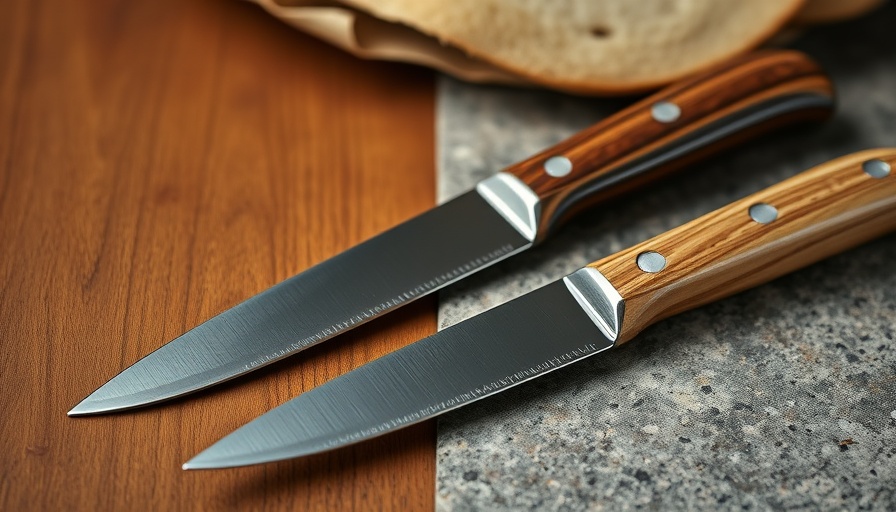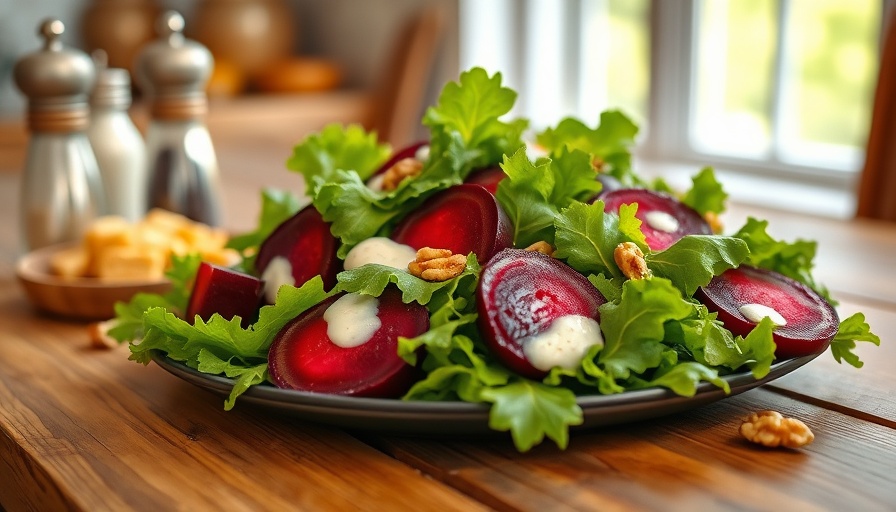
The Challenge of Eating Healthier: An Overview
Despite extensive knowledge about nutrition, many struggle to cultivate healthier eating habits. The video ‘Friday Favorites: Why Don’t People Eat Healthier?’ delves into the paradox that although Americans understand principles of healthy eating, they often fail to act on this knowledge. This dissonance is not merely ignorance; rather, it’s deeply rooted in psychological biases, societal pressures, and a lack of personal responsibility that interplay in our daily food choices.
In 'Friday Favorites: Why Don’t People Eat Healthier?', the video discusses the reasons behind unhealthy eating habits, prompting us to analyze the crucial insights for improving dietary choices.
Understanding the Disconnect: Knowledge vs. Action
It's widely acknowledged that lifestyle factors such as diet and exercise are critical in preventing chronic diseases. Yet, many individuals perceive their eating habits as healthier than they are. This is partly due to cognitive biases, where people often view themselves as less vulnerable to health risks than their peers. Such perceptions can lead to dismissal of health advice aimed at promoting better nutrition. Addressing this disconnect highlights the importance of self-awareness in establishing healthier habits.
Optimism Bias: A Double-Edged Sword
Optimism bias contributes significantly to unhealthy eating patterns. People frequently underestimate their risk of health issues related to diet, such as obesity and heart disease. For instance, those who consume processed foods or excess sugars often convince themselves that their choices do not put them at high risk. This perception can create a cycle where individuals feel justified in their dietary habits while ignoring the potential long-term consequences. Public health campaigns must work to address this bias and bridge the gap between knowledge and behavior.
The Role of Personal Responsibility in Health
Empowering individuals to take responsibility for their health is crucial. While external factors such as advertising and food availability influence choices, individuals ultimately have the power to make informed decisions about their diet. It is essential to encourage a mindset shift from avoidance of guilt to active responsibility. When individuals recognize their role in their health outcomes, they can feel a greater sense of agency, which can inspire them to make meaningful changes in their eating habits.
Creating an Inclusive Dialogue Around Diet
A significant barrier to healthier eating is societal stigma associated with unhealthy habits. The conversation around diet must not only focus on personal accountability but also acknowledge environmental factors influencing these choices. Bringing forth community dialogues that stress collective responsibility can empower people to interact positively with food, fueling a culture that values nutrition and collective health. This shift might involve rethinking our relationship with food—not merely as fuel but as a vital component of our overall well-being.
Future Trends in Public Health Narratives
Expectations for the future of nutritional health in America suggest a growing focus on evidence-based public health policies that reflect dietary realities. Campaigns promoting the awareness of healthy behaviors should ground their messages in empathy and understanding. By focusing on the science behind nutrition and its implications for mental health and chronic disease prevention, public health advocates can foster a healthier society that appreciates the benefits of better dietary choices.
Conclusion: Empowerment Through Knowledge and Action
In conclusion, the reasons why people don’t eat healthier vary widely from misconceptions about their dietary habits to prevailing societal cues that undermine healthy choices. It is imperative that individuals are encouraged to understand their unique relationship with food and to choose wisely. If you’re ready to implement healthier choices, consider engaging with community resources or nutrition education programs. With the right information and motivation, making healthier dietary changes can significantly enhance your overall well-being. Remember, your health is in your hands—and every small choice counts.
 Add Row
Add Row  Add
Add 







Write A Comment